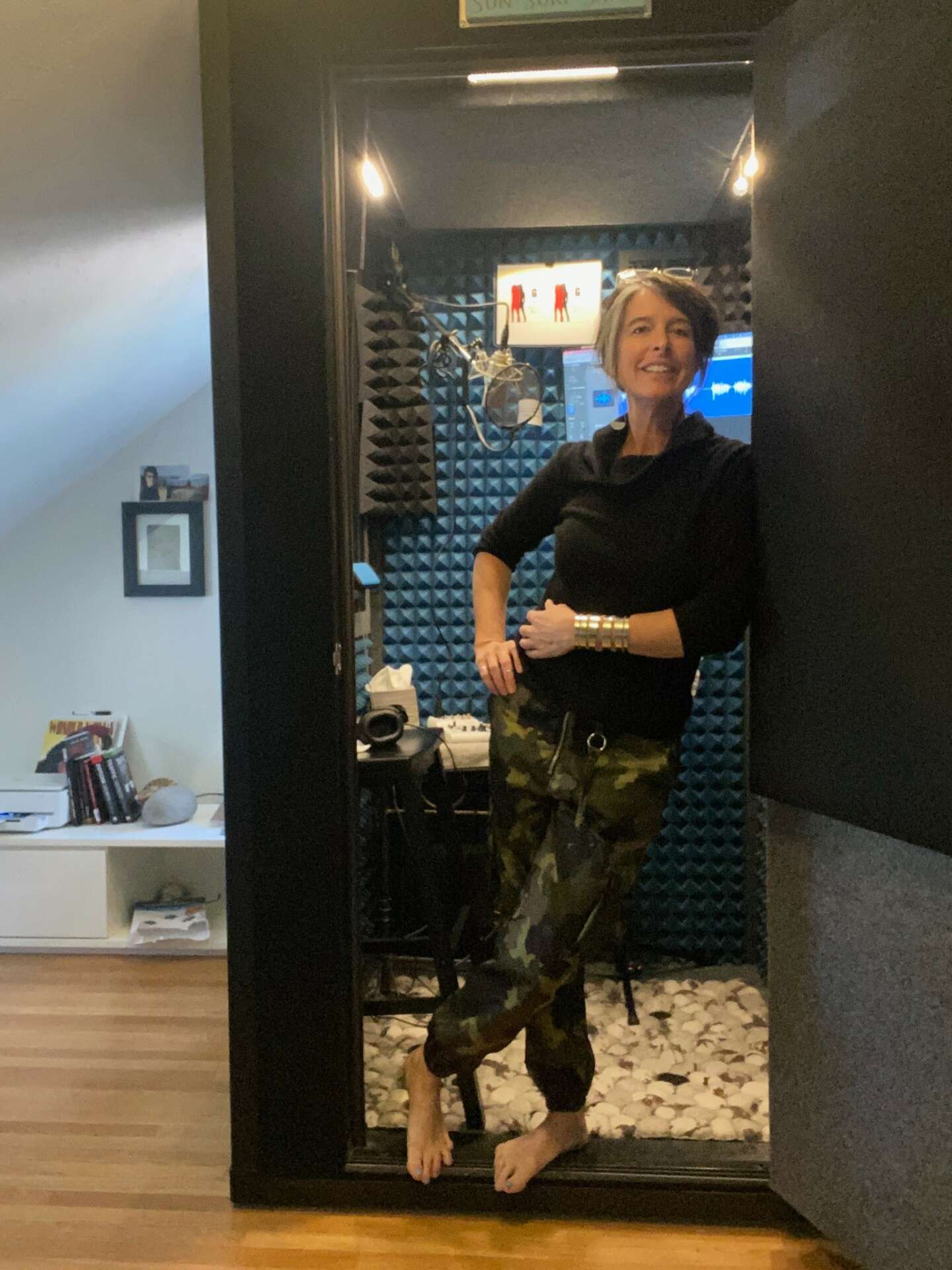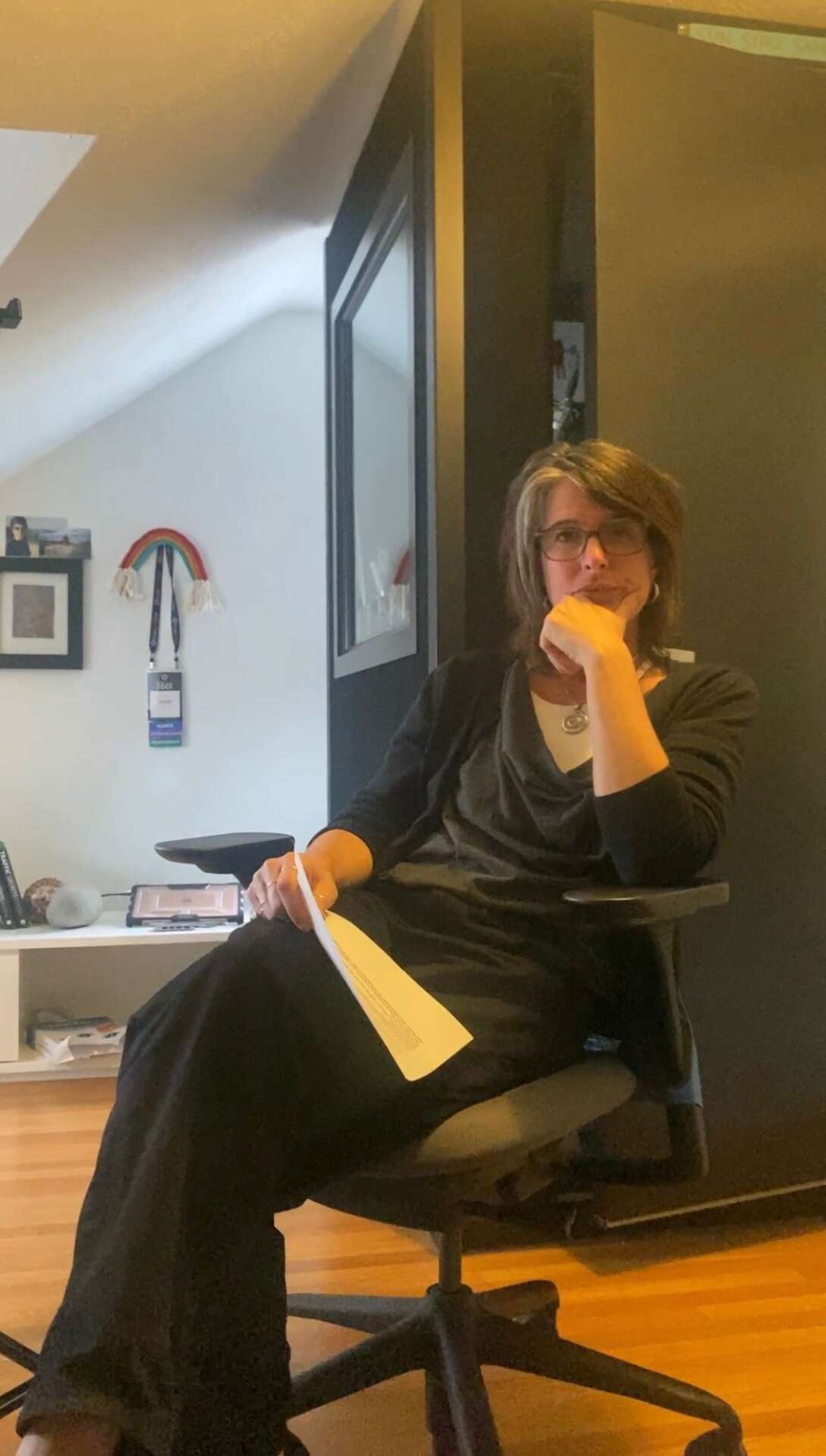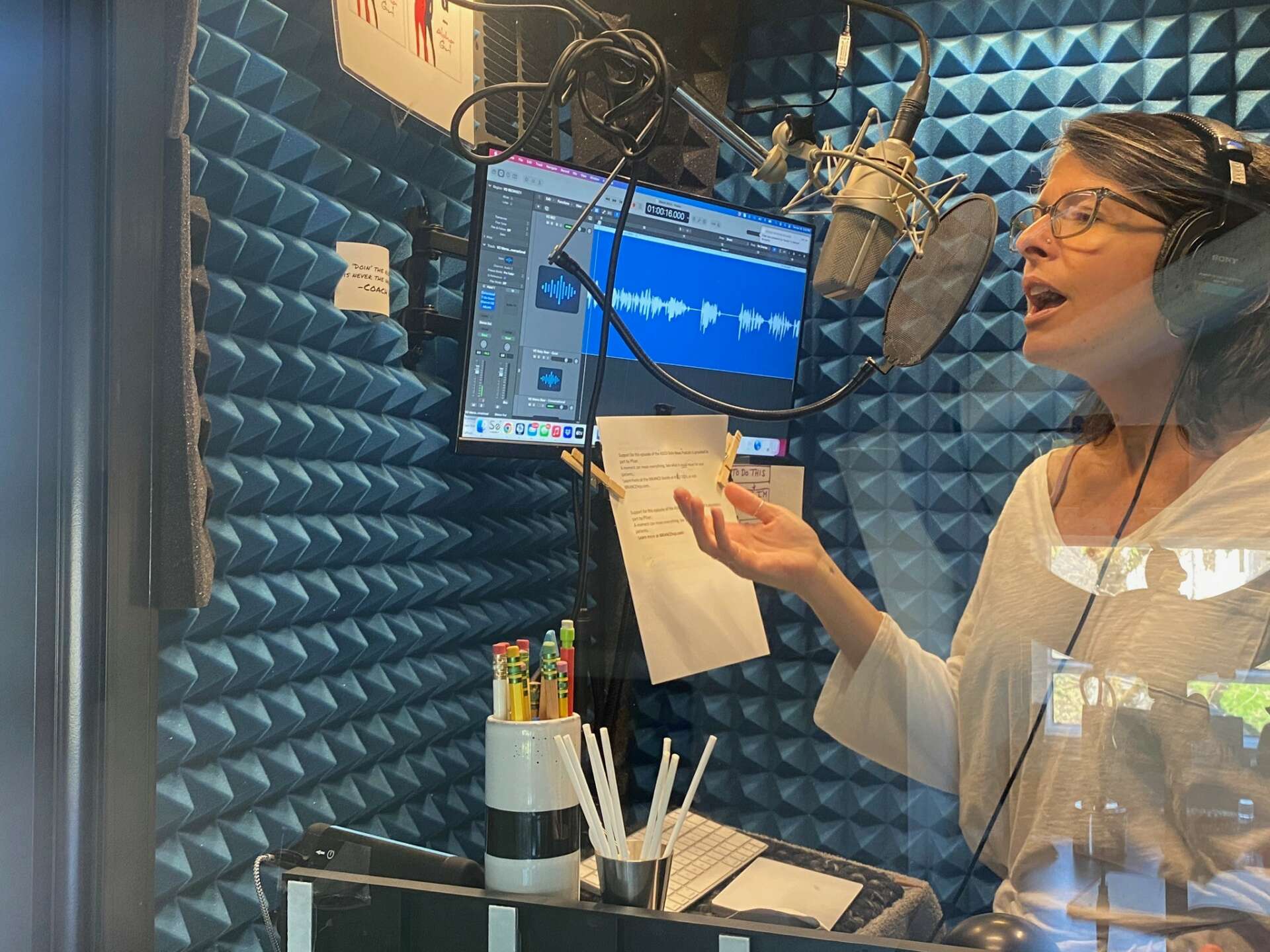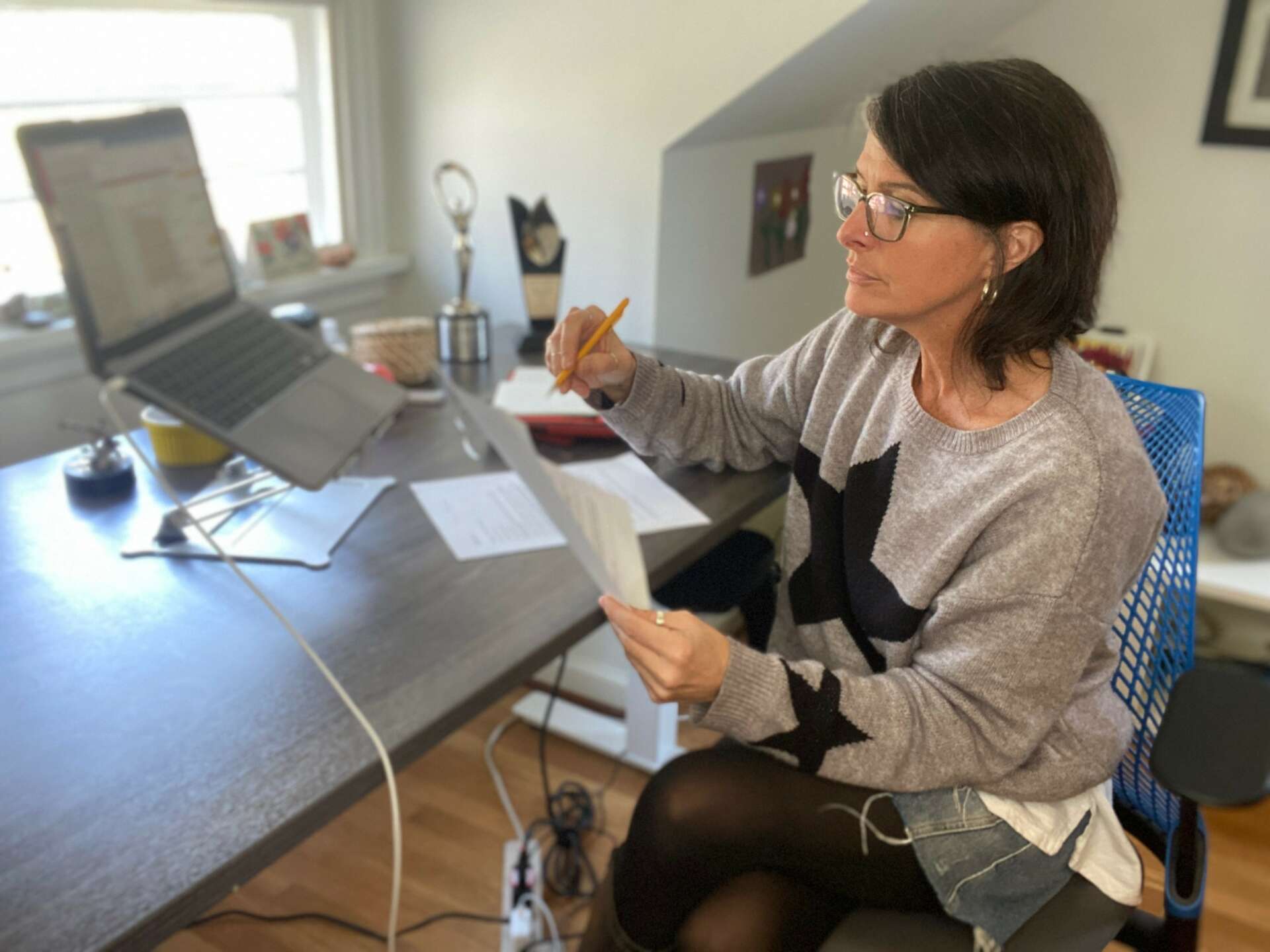We caught up with the brilliant and insightful Nikki Lu Lowe a few weeks ago and have shared our conversation below.
Nikki, thanks for joining us, excited to have you contributing your stories and insights. Learning the craft is often a unique journey from every creative – we’d love to hear about your journey and if knowing what you know now, you would have done anything differently to speed up the learning process.
Learning the craft of voice over has many layers and moving parts. Not just with the technical aspect of performing but with the emotional and psychological.
First up: Practice vulnerability. You need to be secure in who you are enough to allow yourself be become vulnerable and put your work into the universe with having no control over the outcome. This might seem obvious but voice actors don’t have the opportunity to see how their performance is received and learn from it – from auditions, paid gigs, trying to get representation, etc. We often stand in a small booth solo all day and send our work out into the universe via email/ftp hoping we landed whatever we were after. If we don’t land it, it’s rare we hear back. Silence is a “No thanks” and the majority of the time we’re never told the reason why.
Which brings me to the second point: Resilience. 90% of what you do, from auditioning to marketing, is a ‘No’ but you have to keep moving forward regardless or you’ll never make it.
Once you’re set mentally, you can start to focus on the craft itself. I’ve worked with some of the country’s top voice coaches that each specialize in a specific genre. Each of those genres have a different structure to the script and each of them have different styles on what is popular today (aka: what’s going to book). For example, Promo is very different than Explainer which is very different than general Commercial. And Commercial has sub-genres where each is read differently as well (ie: Automotive vs Political). Training is a big investment financially and emotionally but to stay on top of the game, you have to do it. And you have to find the right coach. Coaches are like therapists – if you don’t feel comfortable completely opening yourself up to them and letting go of the fear of being judged, you’re wasting your money and time.
Also, you need to find what genre you’re naturally marketable in. My voice is warm, knowledgeable, trust-worth, nurturing, intelligent, strong, confident. So I do well in healthcare, financial, political, explainer, documentary, automotive, elearning, etc. I also do other industries but this is where I started. Find your niche and strengthen the muscles you already have. Once you have that down, you can then start to expand into other genres you find interesting and learn how to do that read/performance.

Great, appreciate you sharing that with us. Before we ask you to share more of your insights, can you take a moment to introduce yourself and how you got to where you are today to our readers.
I’ve been a voice actor for 18+ year, working mainly out of my onsite broadcast ready studio. My journey into voice over was an organic progression from my curiosity in what was next in life and how to create the lifestyle I wanted. I nurture that curiousity in my kids with the household saying “Never say no to an opportunity until it’s offered”. Meaning, find out everything you can, explore it and only then turn away if it’s not right for you but don’t say no before experiencing what it could be.
Back to my nutshell story – I was originally trained as a teacher and taught everything from Pre-K to adult literacy. Then the software boom happened and I wanted in on that. So I started training programs at a startup which then lead to me working with 5 different software company owners over the years restructuring workflows, developing e-learning and helping the staff transition into their new processes – basically I was brought in as the element of change and growth. While developing elearning, I was narrating each course but knew I had only ever taught physically in front of people using body language so I went to an “Introduction to Voice over” class and that’s where I got hooked. Realizing it was an industry blew my mind. I started building the vo business up on the side and eventually left software all together.
That’s my history. My present is that tell my client’s story. I read the message they want to share or need to get across to their audience and craft a style that will get their words listened to (not just heard). Sometimes this is done solo where the client will email me the script with some direction and I’ll record it on my own, then send it over to them. Sometimes we have a live direct session where we might have a studio, the advertising agency and the end client listening in and giving direction to be sure they have exactly what they need. It’s important to note the voice over is often the very last piece of a project. There could be days to years of work that happened before they reach out to you so expectation of you nailing the sound they have in their head is high. You have to know how to apply the direction they give with the techniques and skills you’ve learned and strengthened over the years and you need to be able to do this on the fly.
My branding is based on my belief that every script has one or more of the messages held within it: To evoke thought, to inspire adventure, to create community. It’s my job to find out which message(s) is held within a client’s copy and honor it.
A lot of people pursue voice acting because it seems like a great creative outlet that you can do from your home. It is but it’s a tough industry to get started in and even tougher to succeed in. Aside from the influx of newbies saturating the market, voiceover is a service based small business and you need to run it as any other business. Being a full-time voice actor doesn’t mean you’re having a great time acting on the mic all day long and getting paid. It means you are spending the majority of your time auditioning, marketing, running accounts, updating your contacts, invoicing, keeping client relationships warm, etc. It’s no joke and can be exhausting physically and emotionally. But if you truly love it and you’re resilient enough to take the hits and keep coming back, it’s worth it.
I also help voice actors organize their business. Running a business when you’re a nerd gone creative is much smoother than being a creative gone nerd. Creative Nerd vs Nerdy Creative. Aside from working one-on-one with voice actors, I’ve listened to their struggles over the years and created an on-demand course called “The Drive: The business of voiceover and setting it up for success” that walks them through building a roadmap for their voiceover career. Folks can check it out at www.ihavethedrive.com to see what I’m talking about.
I also work directly with Production Companies helping them develop internal voice rosters, rather than casting a wide net on Pay-2-Plays. This saves their teams countless hours listening to poor quality submissions, streamlining rate, incorporating diversity and formatting auditions. When you have a list of trusted go-to vo pros, expectations are clear, deadlines are hit, everyone is happy and the project shows it.

We’d love to hear a story of resilience from your journey.
When I first decided to jump into voiceover, I was excited. Like – REALLY excited. I had the vision of booking gigs left and right, being able to do whatever anyone threw at me, weaving magic with powerful creative people. I dove in starry eyed ready to take on the world of vo. And then reality hit me. It was in the form of crickets. Jobs weren’t flooding in, I was scrapping for auditions, not landing them, pay rates were low (because I had to grab what I could) and my self-confidence started to deflate like a wheezing over-filled punch balloon.
Not only did the lack of work impact my self-confidence but also the realization that I had to run a business. Buying equipment, invoicing, tracking payments, tracking clients, searching for prospects, finding the right coaches, scraping money together to pay for demos, marketing. On and on. And the business part was taking up much more time than the voicing part – the part that I loved. That’s when it dawned on me – A full-time voice actor spends most of their full-time running a business, not weaving magic on the mic. It was a big smack in the creative face.
Going from a creative high to a logistical low almost brought me to me knees. Almost. Thankfully, both my professional and personal life prior taught me resilience. Some call it ‘the gift of trama’. I call it simply “the gift’ I knew I had to plow through, organize and streamline the business (the best that I could) and figure out how to get my hands on auditions. I went to the voice actors who were doing what I wanted to do on a level I wanted to do it. I asked them who they trained with, who produced their demos, etc. And respecting their time, I offered to pay for a ‘consulting session’ or give them contacts I had. Knowledge people gather is precious and I wanted to make it clear I was aware of their journey to gain that knowledge. Not everyone accepted a payment but it was a token of respect and it was received by everyone with a nod of appreciation.
That was over 18 years ago and I still have the same approach to my career. When I fall, get up, look at why I fell, see how you can strengthen the muscles, search for people who already have the strong muscles and keep moving forward. The voiceover industry is no joke – you need to be resilient, how to pull yourself out of imposter syndrome, how to accept rejection multiple times a day and how to say no to work/clients/agents that don’t reflect the level you’re striving to be at.

Learning and unlearning are both critical parts of growth – can you share a story of a time when you had to unlearn a lesson?
When I first started hiring some of the top voiceover coaches, I kept hearing the same observation in different ways: “Stop gilding the lily”, “You’re holding it too precious”, “What are you doing? Are you afraid the audition police are going to arrest you?”, “Self doubt is inappropriate and not serving you.”.
What did they mean? They were saying “Stop following the rules”.
My previous profession in business and teaching taught me to follow the rules. And I was good. Really good at what I did. I could hit a deadline and get my message across in a heartbeat. But going from a creative nerd to a nerdy creative brought some challenges. The main one was not knowing how to be vulnerable in what I was putting out in the world. And in voiceover, if you’re not vulnerable and allow your true self to shine through, you can’t connect to the story and neither can your audience. You’ll sound like every other mechanical, untrained newbie voice actor out there trying to desperately make a buck. And that was absolutely not the group of people I wanted to be a part of.
So I trained. I trained my head off. At one point, I selected 3 coaches and worked with them at the same time to emotionally, what I called, “whack the hell out of me with fluffy pillows”. I know myself. I’m strong and the only way I was going to be able to crack that rule following shell was to bombard myself. I took improve, I coached in commercial, I coached in narration, I took singing lessons until one day, a style was coming out of my mouth that I had never heard before on the mic. And amazingly enough, that style was me. The style that I talk in throughout my day away from the mic, through the emotions I naturally feel and the situations I organically find myself in. When I’d originally stand in front of the mic, she’d disappear and I’d follow every punctuation to the T. But now? Now I just tell the story how I would tell the story if that story was happening to me away from the mic. I know I’m making it sound simple but it took a lot of fluffy pillows and vulnerability to give myself permission. Permission to be myself – which is more than enough to be in my performance.


Contact Info:
- Website: https://nikkilulowe.com/
- VO Course: https://ihavethedrive.com
- Instagram: https://www.instagram.com/nikkilulowevoiceover/
- Linkedin: https://www.linkedin.com/in/nikki-lu-lowe-voice-over/


